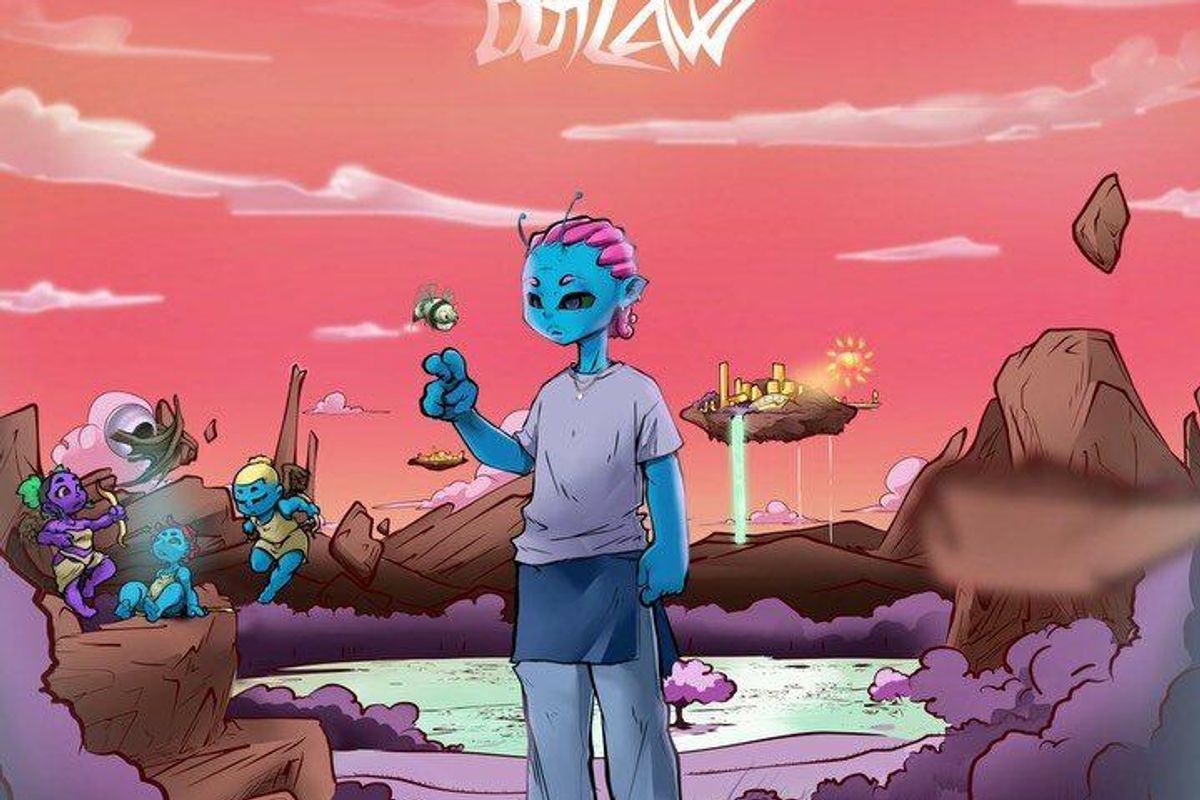Victony’s ‘Outlaw’ Emboldens the Scope of Afropop
Written by ABR on 06/06/2022

Victony’s place in Afropop knows no boundaries. Ever since breaking out with a slew of emo-inspired rap songs, the 20-year-old has continued to evolve his artistry. Now he’s a bankable musician with impactful contributions on transcendental Afropop records like Mayorkun’s “Holy Father” and Savage’s “Rosemary.”
Heading towards pop stardom, Victony was halted by a car accident in April 2021. He lost a friend and after being admitted to hospital, sections of the Nigerian music community contributed towards his welfare. The budding musician however continued his ascent, releasing the two-track EP Dark Times just three months later. The songs were reflective of his perspective; they also held the promise of Victony’s resilience.
Afropop is too often described by its hedonist allure but Victony belongs to a new crop of musicians. These acts know the unmistakable power of a bop but are nevertheless curators of their mental landscapes. To say contemporary Nigerian pop is introspective would be stating the obvious. A listen to Victony’s Outlaw would suffice.
The project collects his artistic qualities into a coherent presentation. His first EP Saturn touched base with Victony’s unconventional influences. His second, Nataraja, saw him collaborate with Rexxie who helped introduce more pomp to his approach. Outlaw was preceded by the singles “Apollo” and “Kolomental,” with both establishing his grasp of masterful lyrical arrangement and an astute ear for great beats.
The Outlaw title can be understood as Victony’s hint at his individuality. But more realistically it features in the title of his first mixtape (The Outlaw King), seemingly continuing a thread that began five years ago. In the age of hyper-realized pop songs created for online buzz, Victony is rather simple. His releases have the advantage of reflecting on his mind-state while establishing the latest iteration of his ever-evolving sound.
Zesty chants introduce “Outlaw,” the first record on the tape. “We are the champion,” is repeatedly sung in a Patois-inflected tone. Victony’s entry possesses the necessary gravitas, sweetly layering his silky vocals into immaculate pockets of space. His lyrics are affirmative and affecting: “Say I no dey fear fire, champion boy you go vex tire/ enemy saliva no dey quench fire” he sings with infectious confidence on the chorus. Here and elsewhere, Victony’s writing is enriched with conversational Nigerian references.
According to an account, “Apollo” was inspired by DJ Pluto and Beatenberg’s “Remember You.” You’d hear similar melodic undertones on Priime’s production but Victony’s verses carry the unmistakable groove of a Nigerian pop star. “Apollo” is the local term for conjunctivitis, the infection that might spread through close interaction with an infected person, especially their eyes. Therefore when Victony says “Apollo dey o, I no go fit look Uche face” he’s making a double reference to a classic 2Baba lyric which has entered the lexicon of modern pop culture.
On “All Power” he flips a popular Christian song into a raunchy catchphrase. He’s attentive to nuances but disregards the fears of being interpreted seriously; sometimes, the more ludicrous the lyrics, the more potent the song. To its credit, Outlaw expresses a number of flagrant ideas. Almost every song is sprinkled with religious allusions or vivid descriptions of a steamy progression of events. The chorus of “Jolene” literally goe thus: “Jolene, no dey do like this/ I go call police, if you no go gree”, sung with vocoder effects which result in a puerile sense of defiance.
The lighthearted touch continues in other tracks. “Chop And Slide” is a cult classic; early listens featured a Burna Boy verse but somehow that hasn’t been officially released. It remains a brilliant record, warmly helmed by Victony’s detailing of a situationship. He obviously doesn’t want an end to the affair, but the other doesn’t “want anything, she just wan chop and slide”—basically, no strings attached. His rap roots are quite present here, informing the flagrant movement to his verses and their level of sensory detail.
If much of Outlaw finds Victony courting the dramatic quality of heterosexual romance, “Kolomental” is a nostalgic trip into the more gloomy events of his life. He’s reflective of many things: his accident, the betrayal of friends, his future. “I no fit reason am, e go kpai me o” he sings in recognition of the pain, while keeping optimism with the tape’s most striking lines. The quartet of “Make I face my front, make Ogbanje no use me test run/ Make potopoto no stain my cloth, home advantage anytime I ball” is delivered like trademark Victony: wise, witty, and definitely fresh.
Victony’s sonic brilliance compels him to surround himself with similar minds, of which the producers obviously are. The soundscape of Outlaw comprises lush beats which, though helmed by an Afropop core, still dazzles with elements as varied as Calypso and House music. They’re efficient underliners for Victony’s vocals. “No matter how I’m feeling,” said Victony to OkayAfrica earlier this year, “I try to make [my music] open enough for anyone else to see. Even if you can’t hear what I’m saying, the melodies or choice of chords will put you in your feelings”.
He surely backs those words on Outlaw. With seven songs he’s pulled off a masterstroke of a project. And like many listeners and critics have eagerly said, it’s one of the remarkable tapes released so far this year. Given the quality, that fact is unlikely to change by the end of 2022. It’s our hope that by then Victony’s music would have been elevated to befitting heights.



 ABR Group
ABR Group